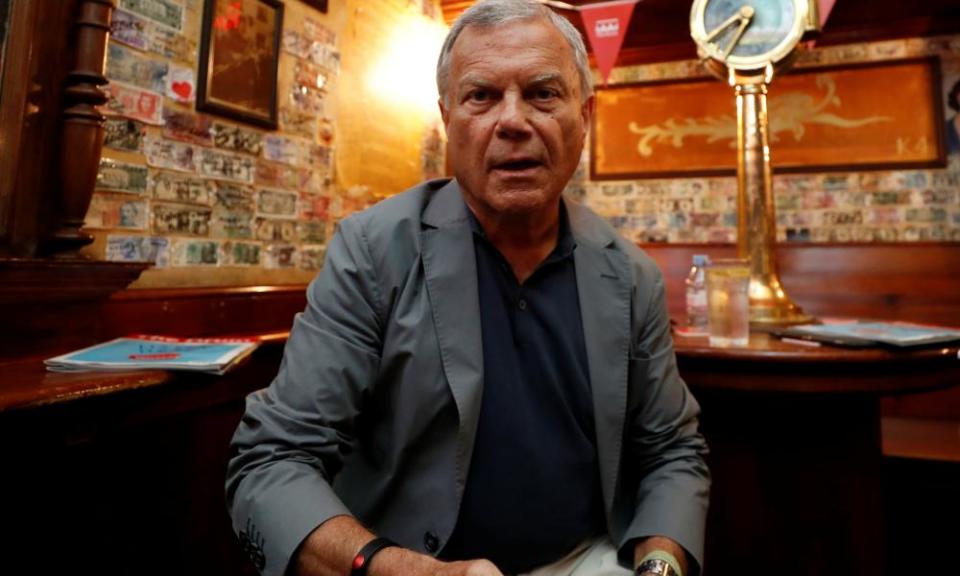Martin Sorrell criticises WPP over its handling of his forced departure

Sir Martin Sorrell has used his first public appearance since being forced to leave the advertising group WPP to criticise the board of his former company, dismiss suggestions that he paid for a sex worker on company expenses, and complain he was not treated fairly.
“What has happened could have come out significantly differently,” he said. “I’ll just leave it at that. There were other courses of action which were open to the company, which they did not take.”
Sorrell dismissed the “scurrilous and salacious stuff that has been thrown around” about his departure in what he called a “ridiculous” press frenzy.
Earlier this month the Wall Street Journal (WSJ) reported one strand of the investigation that led to his departure was an allegation he used company money to pay for a sex worker, which he strenuously denied.
“I’ve signed a confidentiality agreement,” said Sorrell. “A spokesperson for me has made it quite clear what my view is on the allegation ... It is quite extraordinary.”
The advertising tycoon made his comments on Thursday in a crowded Irish pub on the seafront in Cannes, at a fringe event during the Cannes Lions advertising festival.
Sorrell suggested he had been undermined by a high-level source on the WPP board who leaked information to the WSJ. “The most damaging thing that happened during the course of those events was the leak over the Easter weekend at the very top of the company and to which there has been no investigation whatsoever,” he said.
He said WPP had recently been at pains to say all staff were treated the same but his case showed this was not true. “In the case of what happened around the events of 14 April there has been no investigation to my knowledge of how, why, and what the leak consisted of.”
WPP said the investigation into the whistleblower’s allegations followed a process put in place while Sorrell was chief executive. “Regarding the Wall Street Journal’s original story, WPP takes confidentiality extremely seriously and is acting appropriately.”
Sorrell built WPP into the world’s biggest advertising company, housing major agencies such as Y&R and Ogilvy & Mather, and retains a stake in the business. He suggested the interim CEOs, Mark Read and Andrew Scott, should be appointed to replace him as WPP’s joint chief executives on a permanent basis.
“One on their own would not be sufficient in my view but two together can be a very powerful and potent combination,” he said at the event, which was hosted by the advertising industry publication the Drum.
However, WPP said of its hunt for a new chief executive: “We will appoint a CEO in a sole role after evaluating both external and internal candidates.”
Sorrell also addressed accusations that he was a bully, first reported in a Financial Times exposé.
“Am I the easiest person in the world to get along with? Sometimes I can be difficult. I would always say difficult with justification. If it was a fault to demand or expect superior performance and things to go well, then mea culpa.”
He strongly criticised a piece in the FT that detailed the accusations against him, including claims he visited a brothel in Mayfair. “To be fair to me, I’ve often thought that what I should do is publish the emails I got during the course of those six, seven, eight weeks to redress the balance.”
Sorrell, 73, did not have a non-compete clause in his WPP contract and has already started a new advertising business, S4 Capital. He said he was looking to work for at least five years before assessing his health.
He suggested he had struggled to describe his new venture’s business model. “I’ve referred to it being a peanut. Although it does occur to me that some people have peanut allergies.”

 Yahoo News
Yahoo News 